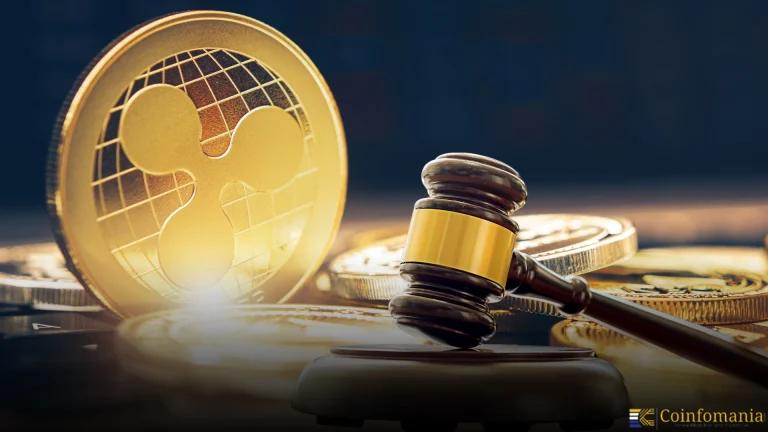Cryptocurrency Regulations in Bangladesh
There are certain barriers to be crossed, as Bangladesh maintains a very strict view on cryptocurrency. Since 2014, Bangladesh Bank has issued several warnings of money laundering, terrorist financing, and financial instability. While there is no official law stating anything against crypto, the country is strongly against the use of it. As global digital finance […]

There are certain barriers to be crossed, as Bangladesh maintains a very strict view on cryptocurrency. Since 2014, Bangladesh Bank has issued several warnings of money laundering, terrorist financing, and financial instability. While there is no official law stating anything against crypto, the country is strongly against the use of it.
As global digital finance grows and the underground crypto adoption in Bangladesh increases, it becomes necessary for investors, businesses, and users to understand crypto regulations in Bangladesh. Sometimes the key regulatory decisions can change the user behavior, fintech innovation or cross-border financial flows.
Key Regulatory Bodies:
- Bangladesh Bank (Central Bank)
- Ministry of Finance
- Financial Intelligence Unit (FIU)
Historical Context
Bangladesh started its relationship with cryptocurrency slowly. Bangladesh Bank released its first statement against Bitcoin usage in 2014. The bank issued warnings in 2016 about how using cryptocurrency could violate two important laws from 1947 and 2012.
During 2020, Bangladesh released its National Blockchain Strategy, which recognized blockchain as essential for the nation’s digital future. However, regulatory confusion persisted. The legal status of crypto ownership remains unclear in 2025 because Bangladesh Bank says crypto lacks official recognition.
The government develops its relationship with technology and the economy through steady progress.
Regulatory Framework
Role of Key Regulatory Authorities
- Overseeing all financial activities and issuing warnings against crypto is the Bangladesh Bank.
- The Ministry of Finance Influences financial policy and could lead crypto laws in the future.
- FIU monitors the money laundering risk associated with crypto.
Licensing & Registration
No crypto businesses are licensed in Bangladesh in an official manner. Running such platforms is prosecuted under existing finance and anti-money laundering laws that make crypto exchanges, exchanges and brokers illegal.
AML & KYC Compliance
However, one should note that Bangladeshi regulators don’t monitor or enforce these KYC rules if international platforms such as Binance and Bybit enforce it on their platforms. The local crypto use is most frequently carried out via peer‐to‐peer (P2P) networks.
Taxation
Currently, there are no specific tax laws regarding cryptocurrency. ‘Tax laws could come into effect if crypto is recognized in the future,’ as, until now, no framework has been issued by the National Board of Revenue (NBR).
ICOs, STOs & Token Offerings
No activities such as ICOs or STOs are allowed or regulated. There is no legal framework under which you can launch token sales or blockchain fundraising in the country.
Bangladesh’s Crypto Policies
As a result, Bangladesh has adopted an extremely formal approach to cryptocurrency usage. Even if it is not explicitly criminalized, the central bank has repeatedly warned that trading or using crypto is against the laws.
Crypto Mining
Regulations have not officially addressed Crypto mining but it is implicitly discouraged. There is the risk of being sued by those operating mining operations.
Government Initiatives
National Blockchain Strategy (2020): Acknowledges blockchain’s future role in government services.
In 2022 Bangladesh Bank is exploring the conception of a Central Bank Digital Currency to aid digital payments.
Penalties
However, there are no clear penalties and crypto trading involvement could potentially lead to being charged under AML or foreign exchange laws.
Bangladesh’s Approach to Crypto Innovation
Although the use of crypto is restricted, Bangladesh is bringing in the digital age by introducing fintech.
The government is looking at a regulatory sandbox for digital finance startups, which will ultimately apply to blockchain-based applications.
Cryptocurrency adoption in businesses is officially restricted, but unofficial P2P crypto transactions are common, especially for remittances.
The National Blockchain Strategy is to use the technology in government sectors for land records, identity systems, and e-governance without discussion of cryptocurrencies at all.
Notable Challenges and Issues
Inconsistent Regulation
Bangladesh hasn’t had a clear regulatory framework and continues to put no clear linear regulation on the table if crypto trading is illegal, is unregulated or simply discouraged.
Enforcement Difficulties
The enforcement is difficult because crypto is decentralized in nature and P2P trading platforms are on the rise. Even with warnings, the country was ranked 17th in the world regarding crypto adoption (2023).
Public Perception
Government messaging is negative, while tech-savvy youth and entrepreneurs view crypto as a tool for financial inclusion and wealth protection in the environment of banking limitations.
Regulatory Trends and Future Outlook
Recent Developments
- In 2022, CBDC feasibility studies were started by Bangladesh Bank.
- Fintech growth is the goal of the regulatory sandbox, which is in its early beta phase.
- Although officially opposed, underground crypto activity has grown.
Predictions for the Future
Bangladesh may stay cautious and focus more on CBDCs and blockchain-related infrastructure rather than public crypto usage.
With global pressure and regional competition from crypto-friendly neighbours, future regulations could come to pass.
Global Implications
Should crypto adoption continue to increase across South Asia, Bangladesh’s approach will affect both digital competitiveness and capacity to entice tech investment.
Conclusion
Currently, Bangladesh has a restrictive crypto policy, but underground adoption and innovation forces are accruing. Although there remains ongoing CBDC exploration and the integration of blockchain with it, the future presents itself slowly but surely in the direction of regulated digital finance.
Knowing this unstable situation is important for investors and businesses; that is a crypto environment to keep an eye on — particularly as the regulatory changes are likely to come soon.
Frequently Asked Questions (FAQs)
1. Is Bitcoin legal in Bangladesh?
It is not officially legal. Despite this, it is not a crime to own it, but the central bank discourages its use.
2. Is it possible to mine cryptocurrency in Bangladesh?
In general, there is not any regulation about mining, but because of the overall crypto ban, the legal risk remains high.
3. Is crypto taxed in Bangladesh?
The crypto transactions or holdings are not legitimate, as there are no clear tax laws associated with them.
4. What is Bangladesh’s CBDC status?
Currently, the Bangladesh Bank is looking into various aspects of a central bank digital currency.
5. Is there any crypto exchange in Bangladesh with a license?
Crypto exchanges are not legally recognized by any Bangladeshi authority, and in fact, there is no such legal binding that can legitimize it.
6. Is crypto used for remittances?
Yes, unofficially. P2P platforms are being used by many users to send as well as receive crypto based remittances.
7. Is it possible for Bangladesh businesses to accept crypto payments?
Legally it is not possible for Bangladeshi businesses to accept payment in crypto. If caught using crypto, businesses are at risk of legal action.
8. Does Bangladesh support blockchain development?
Yes, the National Blockchain Strategy promoting governance and transparency is in place.
9. Are ICOs legal in Bangladesh?
No. Token sales and ICOs are not regulated nor allowed.
10. Will the crypto ban be lifted?
It is unclear as of now. However, government interest in fintech and CBDC might hint that there will be a slow opening up.
Follow us on Google News
Get the latest crypto insights and updates.
Related Posts

Ripple Highlights Custody as Key to $18.9T Tokenized Assets by 2033
Shweta Chakrawarty
Author

Hong Kong SFC Issues New Custody Rules for Crypto Platforms
Shweta Chakrawarty
Author

South Korea and Vietnam eye $150B trade despite Trump tariff
Shweta Chakrawarty
Author